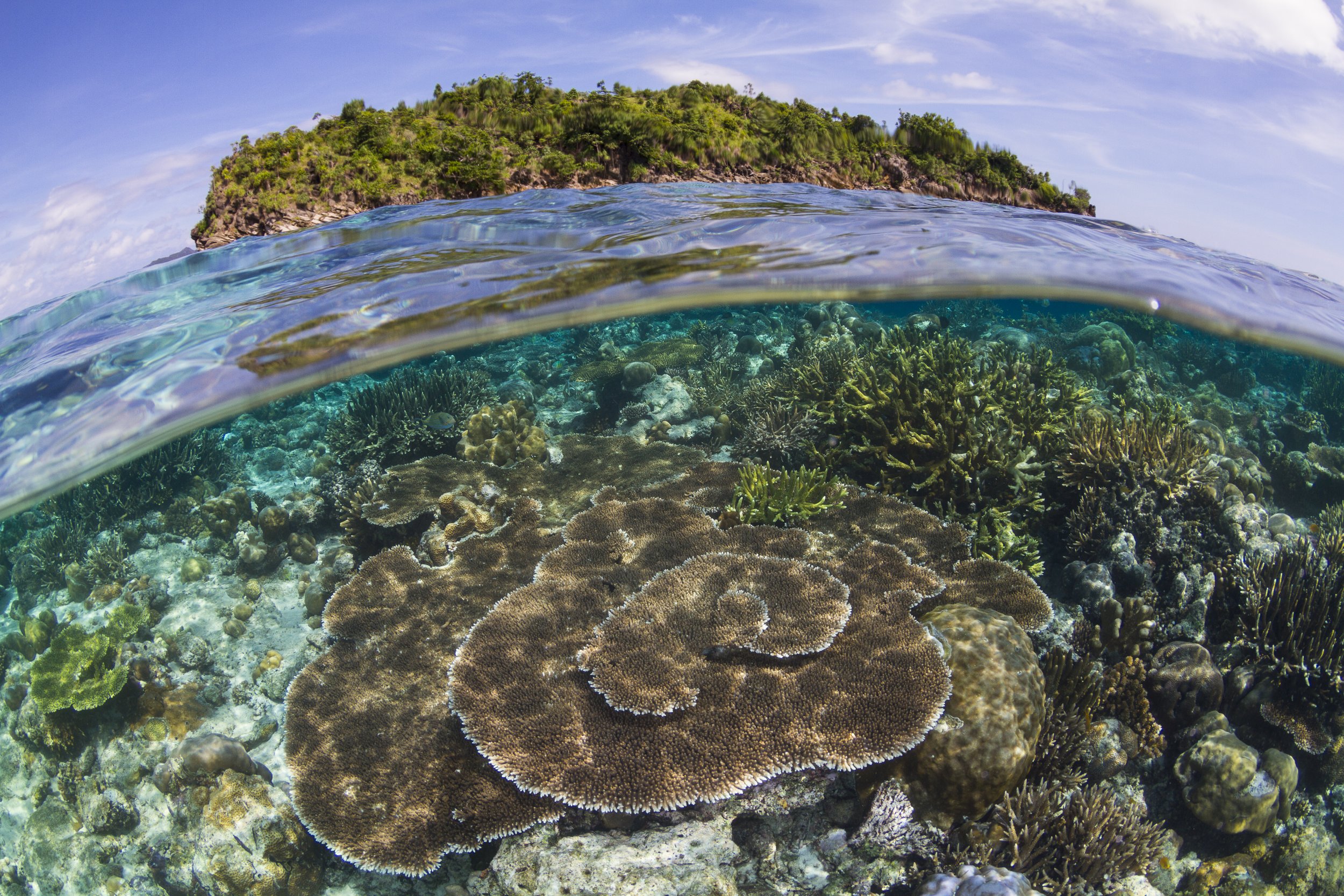rewilding at misool: reversing the extinction trend
In 1854, the author of ‘Walden’, Henry David Thoreau, famously withdrew from daily life and began a self-imposed hiatus in the wild. Ensconced in a woodland cabin for two years, two months and two days, he observed and documented his experience in nature.
His intention was to: “live deliberately, to front only the essential facts of life.” Some theorists believe that he felt impelled to cut himself off due to his rising despondency with the changing world.
Two centuries ago, human activity already had a discernible impact on nature’s rhythm. Population numbers were 85% lower than today: approximately 1.2 billion in 1850, compared to the current estimate of 8 billion in 2022. Despite significantly lower population pressure, the Industrial Revolution brought pioneering changes to industry, communication, and transport networks that redefined commerce and laid the foundations for globalization. Thoreau, also known as the granddaddy of environmentalism, foresaw the emerging conflicts between humans and nature.
““I should be glad if all the meadows on the earth were left in a wild state, if that were the consequence of men’s beginning to redeem themselves.”
”
healthy corals by joe daniels
His philosophies remain relevant in our modern world and unless, like Thoreau, you’ve been living a disconnected life in the woods, it’s quite likely that you have heard of rewilding. The intention of rewilding is a slow, steady restoration of native nature, creating spaces inside which ecosystems can rebalance. Rewilding Europe defines it as the act of: “letting nature take care of itself, enabling natural processes to shape land and sea, repair damaged ecosystems and restore degraded landscapes.”
Rewilding is a concept that would undoubtedly have had Thoreau’s full backing. This is one of a number of strategies that are urgently needed to halt and reverse biodiversity loss, one of the central goals of the COP15 Biodiversity Conference in Montreal.
schooling snapper by sabine templeton
In 2005, when we began our mission at Misool Resort to transform a shark finning camp into a thriving marine protected area, the term was yet to enter the popular lexicon, but we were rewilding. We knew if we gave nature space to breathe, it would recover and rebound.
Our investment in rewilding has been a win for nature. We’ve recorded a remarkable increase in fish biomass and shark numbers, protected a thriving population of endangered manta rays and reversed the degradation of the coral reefs. In 17 years, we’ve employed a holistic approach, from our 18-person Ranger patrol who protect the boundaries of the Misool Marine Reserve, a Reef Restoration Project that replants corals and direct, small-scale interventions such as assisting turtles back to the ocean after laying their eggs.
We invite you to enjoy this short film about our rewilding journey thus far. Special thanks to MAC3 Impact Philanthropies for sharing this at the Asian Philanthropy Circle event in November 2022.



